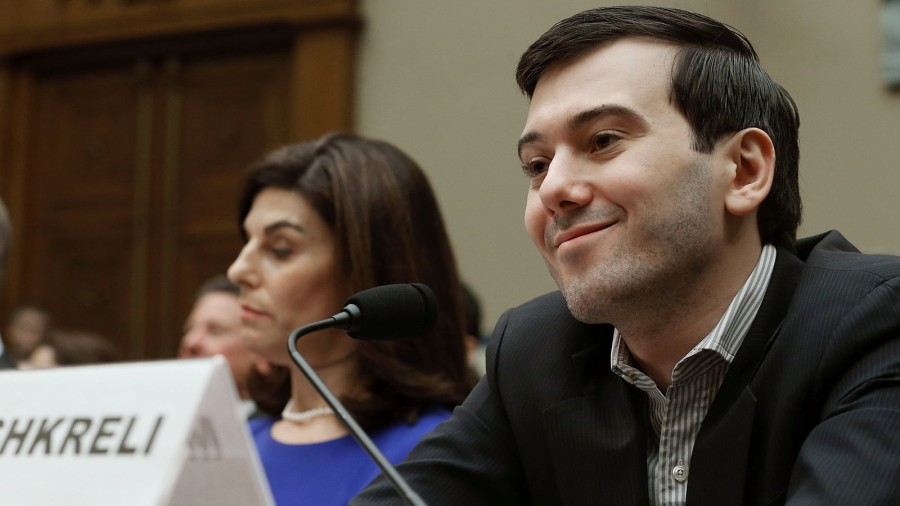Corporate Prioritization: A Healthy Profit or a Healthy Patient?
In 2015, the then CEO of Turing Pharmaceuticals, Martin Shkreli, came under fire after raising the price of a potentially life-saving drug by over 5,000% overnight. This steep price increase meant that each pill would go from $13.50 each to an outrageous $750 each. The drug under question, Daraprim, is primarily used by patients that have HIV or other conditions that drastically suppress the immune system. Daraprim has been used to fight off parasitic viruses and infections that are life-threatening without the adequate defense that a strong immune system provides.
Shkreli’s involvement in corporate America began at the young age of 17 when he landed an internship at a hedge fund on Wall Street before he had even graduated high school. His value to the company was recognized when he wisely advised that they short-sell a failing stock, which would later benefit the company greatly. Eventually, Shkreli’s foresight drew suspicion but he was never able to be pinned with violating any regulations regarding insider information. Shkreli would go on to found two successful companies and a hedge fund of his own all before the age of 30. Although he had proven to be monetarily successful, Shkreli developed a reputation of immaturity and “affluenza” despite his self-made beginnings. Because of his lack of professionalism, he was even required to step down as CEO of his biotechnology company Retrophin.
When Shkreli founded Turing Pharmaceuticals in 2015, he aimed to eliminate competition by means of horizontal and vertical integration (he would control the entire market of a given drug by purchasing companies’ patent-free medicines). When the company purchased Daraprim, Shkreli raised the price tremendously because, essentially, he could. A bottle of 50 pills that would cost a patient $675 would now cost $37,500 overnight. When presidential candidate Senator Bernie Sanders requested that the upcharge be questioned, Turing Pharmaceuticals responded by hiring lobbyists and a crisis public relations firm to defend Shkreli’s decisions. After the issue became a nationally public topic of discussion, Shkreli claimed that the company would lower the price of the drug by an unspecified about; however, he never followed through. Later that year, the FBI arrested Shkreli and charged him with securities fraud for a Ponzi-like scheme that he had concocted at his previous positions with the companies he started: MSMB Capital Management, an investment company, and Retrophin. After his arrest, Shkreli was removed as CEO of KaloBios Pharmaceuticals, a company in which he had acquired a large stock.
Just last Thursday, the now former CEO of Turing Pharmaceuticals appeared before the House Oversight and Government Reform Committee on Capitol Hill. When questioned about the drastic price increase, Shkreli pleaded the fifth and refrained from commenting on the situation. His demeanor throughout the questioning process indicated that he felt no remorse for the effects that his price increases have had on people that desperately need the drug. While he refused to verbalize any defense of his actions, Shkreli later took to twitter sharing his thoughts on the situation as a whole: “Hard to accept that these imbeciles represent the people in our government.” Throughout the investigation, it became clear that Shkreli’s intentions were purely profit-motivated and gave little regard to its customers. Shkreli has even said that he should have raised the price of the drug even more than he did. He argues that his job is not to make sure that patients get better, but that it’s to make a profit for his shareholders and himself. Furthermore, he claims that politicians, including presidential candidates Hilary Clinton, Bernie Sanders, and Donald Trump, have only condemned him due to political motive because of the way that the media has so publically demonized him. Shkreli has been expressive with the media and with social media in defending himself informally by claiming that “There was no incentive to make a new drug. I feel pretty good about what I did.” Shkreli also claims that after patients’ copays, the drug will range from $0.01 to $750 per pill with the majority of patients paying a low price; however, it is expected that these patients’ copays will be $16,000 since the price was raised.
While this story seems extraordinary and almost unbelievable, the practice of marking up drug prices is extremely common in the pharmaceutical industry. As this story further develops, it forces the public and the government to question the role of ethics in the medical industry, and what that means for the drug company executives that have power over hospitals and patients across America.










